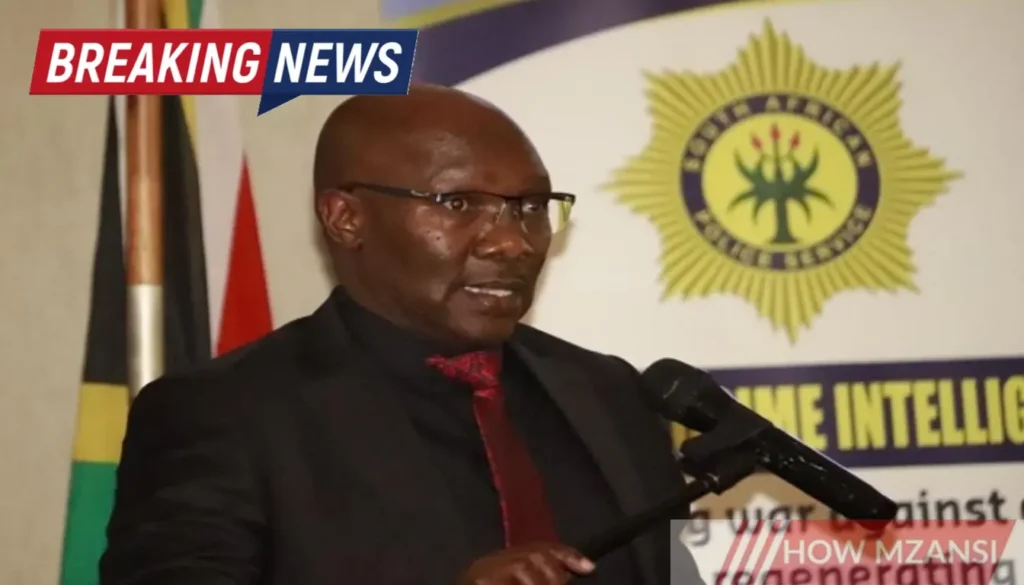A deepening crisis has hit the South African Police Service (SAPS) following the arrest of top Crime Intelligence boss Dumisani Khumalo, casting a dark shadow over the country’s crime-fighting leadership. Khumalo, along with five senior officials, now faces serious charges of fraud, corruption, and abuse of power.
The scandal centres around the questionable appointment of Dineo Mokwele, a 30-year-old allegedly unqualified officer, to a top-secret post. Her new role granted access to national covert operations — despite suspicions that her qualifications were forged.
Demand for Disciplinary Action Grows Louder
Public trust in SAPS has once again been rocked. Civic watchdog Forensics for Justice has stepped in, demanding swift and transparent disciplinary action. The group’s lawyers have issued a formal letter of demand to National Police Commissioner Fanie Masemola, threatening court proceedings if no action is taken.
The watchdog insists that the accused must be suspended immediately to prevent interference with ongoing investigations. Their warning is clear — failure to act allows further misconduct and erodes the credibility of the entire Crime Intelligence division.
“For at least 20 years, Crime Intelligence has been led by criminals,” the group’s letter claims.
The organisation has given Commissioner Masemola until 2 July to present a response and action plan or face legal intervention to enforce suspensions.
Leadership Under Fire, Internal Moves Begin
In response to mounting pressure, SAPS spokeswoman Brigadier Athlenda Mathe confirmed that internal disciplinary processes have started. To prevent disruption in the division’s core functions, a new acting Divisional Commissioner will be appointed this week.
Mathe emphasized the SAPS’s commitment to restoring order and accountability. However, critics argue that years of poor oversight and deep-seated corruption won’t be solved by temporary moves alone.
Khumalo and his co-accused were released on R10,000 bail after their arrest last week. The allegations against them go beyond irregular appointments — they include fraud, corruption, and granting unauthorized access to highly classified intelligence systems.
Public Confidence at Risk
The Mokwele case has exposed a deeper rot within SAPS structures. The idea that someone could climb the ranks and handle sensitive intelligence using fake qualifications is both alarming and dangerous for national security.
Forensics for Justice argues that continued employment of the accused gives them room to manipulate systems and potentially commit more crimes. As the legal clock ticks, all eyes are now on Commissioner Masemola’s next move.
Whether SAPS can recover from this reputational blow depends not only on immediate disciplinary action, but also on a deeper transformation of its internal structures and leadership ethics.






